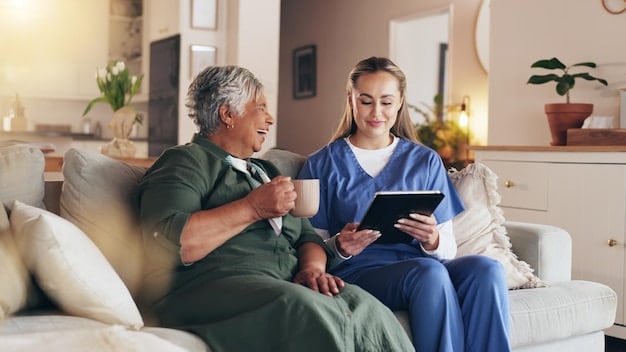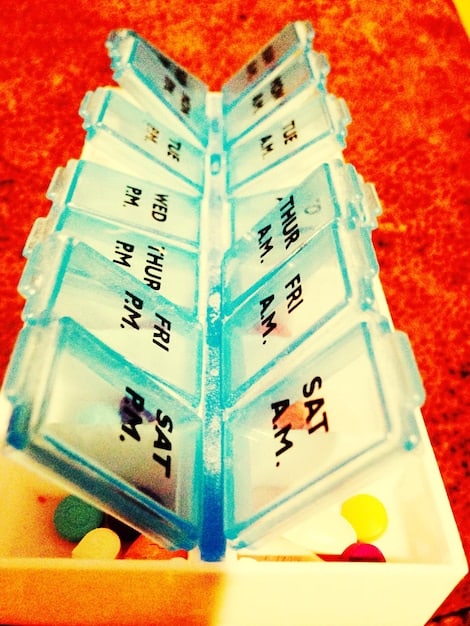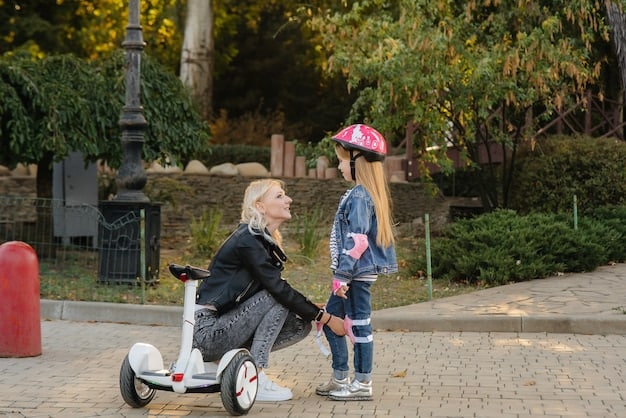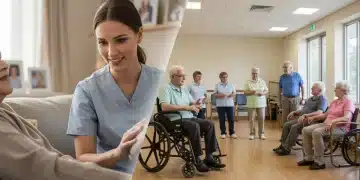Assistive Tech for Caregivers: Top 7 Gadgets for Easier Daily Life

Assistive technology for caregivers encompasses a range of devices and tools designed to simplify daily tasks, enhance the quality of care provided, and improve the overall well-being of both caregivers and care recipients, from medication reminders like Pill dispensers to voice-activated assistants that manage schedules..
Caregiving is a demanding role, often filled with numerous daily tasks and responsibilities. Assistive technology for caregivers offers innovative solutions to simplify these tasks, reduce stress, and improve the quality of care provided.
Understanding Assistive Technology for Caregivers
Assistive technology refers to devices and equipment that help individuals with disabilities or age-related limitations perform tasks more easily and safely. For caregivers, these tools can make a significant difference in managing daily routines and providing effective care.
What is Assistive Technology?
Assistive technology includes a wide range of devices from simple tools to complex systems designed to aid individuals with various needs. These technologies can support physical, cognitive, and sensory challenges, making everyday tasks more manageable.
Benefits of Assistive Technology for Caregivers
The benefits of assistive technology extend to both caregivers and care recipients. These devices can reduce physical strain, improve communication, enhance safety, and promote independence. By using assistive technology, caregivers can optimize their time and energy, leading to better overall care.
- Reduces physical strain and fatigue
- Improves communication and coordination
- Enhances safety and prevents accidents
- Promotes independence and dignity for care recipients
In summary, assistive technology is a valuable tool for caregivers, providing practical solutions to ease the demands of daily caregiving while enhancing the well-being of both the caregiver and the care recipient.
Medication Management Devices
One of the most crucial aspects of caregiving is medication management. Forgetting or mixing up medications can have serious consequences. Assistive technology offers several solutions to help caregivers ensure medications are taken correctly and on time.
Automated Pill Dispensers
Automated pill dispensers are designed to release medications at specific times, ensuring the correct dosage is administered. These devices can be programmed to dispense pills into a cup or tray, and some models even send reminders via alerts or phone calls.
Smart Pill Bottles
Smart pill bottles track when the bottle is opened, providing reminders if a dose is missed. They can also send notifications to caregivers, alerting them to any inconsistencies in medication adherence. This real-time tracking helps caregivers stay informed and proactive.

- Ensure accurate medication dosages
- Provide timely reminders to avoid missed doses
- Reduce the risk of errors and improve safety
- Offer peace of mind for caregivers and care recipients
In this section, we explored how medication management devices can simplify one of the most critical aspects of caregiving, providing a safer and more reliable way to handle medications.
Mobility Aids
Mobility issues can make daily activities challenging for both caregivers and care recipients. Assistive technology offers a range of mobility aids to improve independence and reduce the risk of falls and injuries.
Walkers and Rollators
Walkers and rollators provide support and stability, helping individuals maintain balance and move around more easily. Rollators often include a seat for resting, making them ideal for longer distances.
Power Wheelchairs and Scooters
For individuals with limited mobility, power wheelchairs and scooters offer independence and freedom. These devices allow users to navigate both indoor and outdoor environments with ease, reducing the need for constant assistance.

- Enhance mobility and independence
- Reduce the risk of falls and injuries
- Improve quality of life and access to community
- Decrease the physical strain on caregivers
In this section, we discussed the importance of mobility aids in supporting both caregivers and care recipients, enhancing safety and promoting a more active and independent lifestyle.
Communication Devices
Effective communication is vital in caregiving. Assistive technology offers various communication devices to help individuals with speech or cognitive impairments express themselves and stay connected.
Speech Amplifiers
Speech amplifiers are useful for individuals with weak or soft voices. These devices amplify the voice, making it easier to be heard in conversations and group settings.
Communication Boards and Apps
Communication boards and apps allow individuals to communicate by pointing to pictures, symbols, or words. These tools can be particularly helpful for those with aphasia, autism, or other communication disorders.
- Improve communication and understanding
- Reduce frustration and isolation
- Enhance social interaction and connection
- Support cognitive function and memory
Communication devices play a critical role in fostering better relationships and ensuring care recipients can express their needs and preferences effectively, reducing stress and improving overall well-being.
Home Safety Gadgets
Ensuring a safe home environment is a priority for caregivers. Assistive technology offers various gadgets to help prevent accidents and injuries, promoting a secure living space.
Motion Sensors and Fall Detection Devices
Motion sensors can detect movement and alert caregivers to potential falls or wandering. Fall detection devices automatically call for help if a fall is detected, providing immediate assistance.
Smart Home Systems
Smart home systems can control lighting, temperature, and door locks, enhancing safety and convenience. These systems can be programmed to automate tasks and monitor activity, providing caregivers with valuable insights.
- Detect falls and alert caregivers immediately
- Provide real-time monitoring of activity
- Automate tasks for enhanced convenience
- Create a safer and more secure living environment
Home safety gadgets are essential for creating a safe and supportive environment, ensuring that care recipients can live comfortably and securely in their own homes.
Cognitive Aids
Cognitive impairments can present significant challenges for both caregivers and care recipients. Assistive technology offers a variety of cognitive aids to support memory, attention, and problem-solving skills.
Digital Reminders and Calendars
Digital reminders and calendars can help individuals remember appointments, tasks, and medications. These devices provide visual and auditory prompts, ensuring important information is not forgotten.
GPS Trackers
GPS trackers can help locate individuals who may wander due to dementia or Alzheimer’s disease. These devices provide real-time location data, allowing caregivers to quickly find and assist their loved ones.
- Support memory and attention
- Reduce confusion and anxiety
- Enhance independence and safety
- Provide peace of mind for caregivers
Cognitive aids are invaluable for supporting individuals with cognitive impairments, helping them maintain their independence and quality of life while providing caregivers with the tools they need to provide effective care.
Personal Emergency Response Systems (PERS)
Personal Emergency Response Systems (PERS) provide immediate access to help in case of an emergency. These systems are particularly important for elderly individuals living alone or those with medical conditions.
Wearable Devices
Wearable PERS devices, such as pendants and wristbands, allow individuals to call for help with the touch of a button. These devices are lightweight and easy to use, providing peace of mind for both caregivers and care recipients.
Two-Way Voice Communication
Two-way voice communication systems allow individuals to speak directly with emergency responders. These systems provide reassurance and guidance, ensuring help arrives quickly and efficiently.
- Provide immediate access to help in emergencies
- Offer peace of mind for caregivers and care recipients
- Reduce anxiety and fear
- Enhance safety and security
PERS devices are essential for ensuring that help is always available in emergencies, providing a critical safety net for elderly individuals and their caregivers.
Voice-Activated Assistants
Voice-activated assistants like Amazon Echo and Google Home can greatly simplify daily tasks for caregivers and care recipients. These devices can be used to control devices, set reminders, make calls, and access information hands-free.
Setting Reminders and Alarms
Caregivers can use voice commands to set reminders for medications, appointments, and other important tasks. This can help ensure that nothing is forgotten and that daily routines are followed consistently.
Controlling Smart Home Devices
Voice-activated assistants can control smart home devices such as lights, thermostats, and door locks. This can enhance safety and convenience, allowing caregivers to manage the home environment with ease.
- Improve efficiency and organization
- Enhance safety and convenience
- Support independence and autonomy
- Reduce stress and fatigue
Voice-activated assistants are a versatile and invaluable tool for caregivers, offering a range of features to simplify daily tasks and improve the quality of care.
| Key Point | Brief Description |
|---|---|
| 💊 Medication Dispensers | Ensures timely and accurate medication dosages. |
| 🚶 Mobility Aids | Enhances mobility and reduces fall risk. |
| 🗣️ Communication Devices | Improves communication for individuals with speech impairments. |
| 🚨 PERS | ensures a quick response to emergencies. |
Frequently Asked Questions (FAQ)
▼
Assistive technology refers to devices and equipment that help individuals with disabilities or age-related limitations perform tasks more easily and safely, improving their overall quality of life.
▼
Assistive technology can reduce physical strain, improve communication, and enhance safety for caregivers, making daily tasks more manageable and improving the quality of care provided.
▼
Examples include automated pill dispensers, smart pill bottles, and medication reminder apps, which help ensure medications are taken correctly and on time, reducing errors and improving adherence.
▼
Assistive technology such as motion sensors, fall detection devices, and smart home systems can prevent accidents, monitor activity, and automate tasks, creating a safer and more secure living environment.
▼
Voice-activated assistants like Amazon Echo and Google Home can set reminders, control smart home devices, and provide hands-free access to information, improving efficiency and convenience for caregivers and care recipients alike.
Conclusion
Assistive technology offers a wide array of solutions to simplify the demanding tasks of caregiving, enhance the quality of care, and improve the overall well-being of both caregivers and care recipients. By leveraging these innovative gadgets, caregivers can reduce stress, optimize their time, and create a safer and more supportive environment for those they care for.





